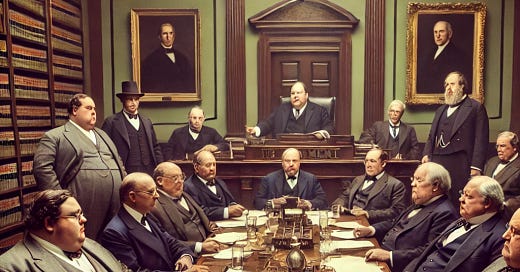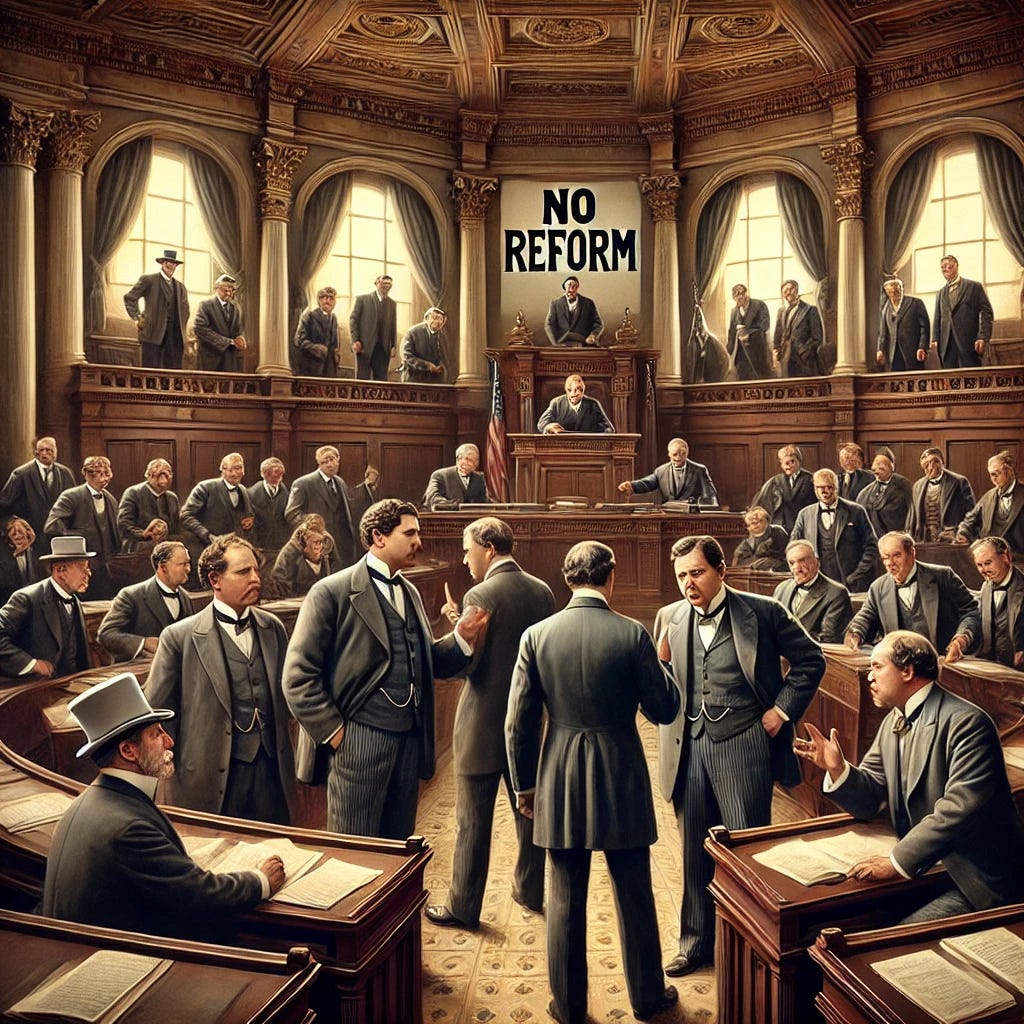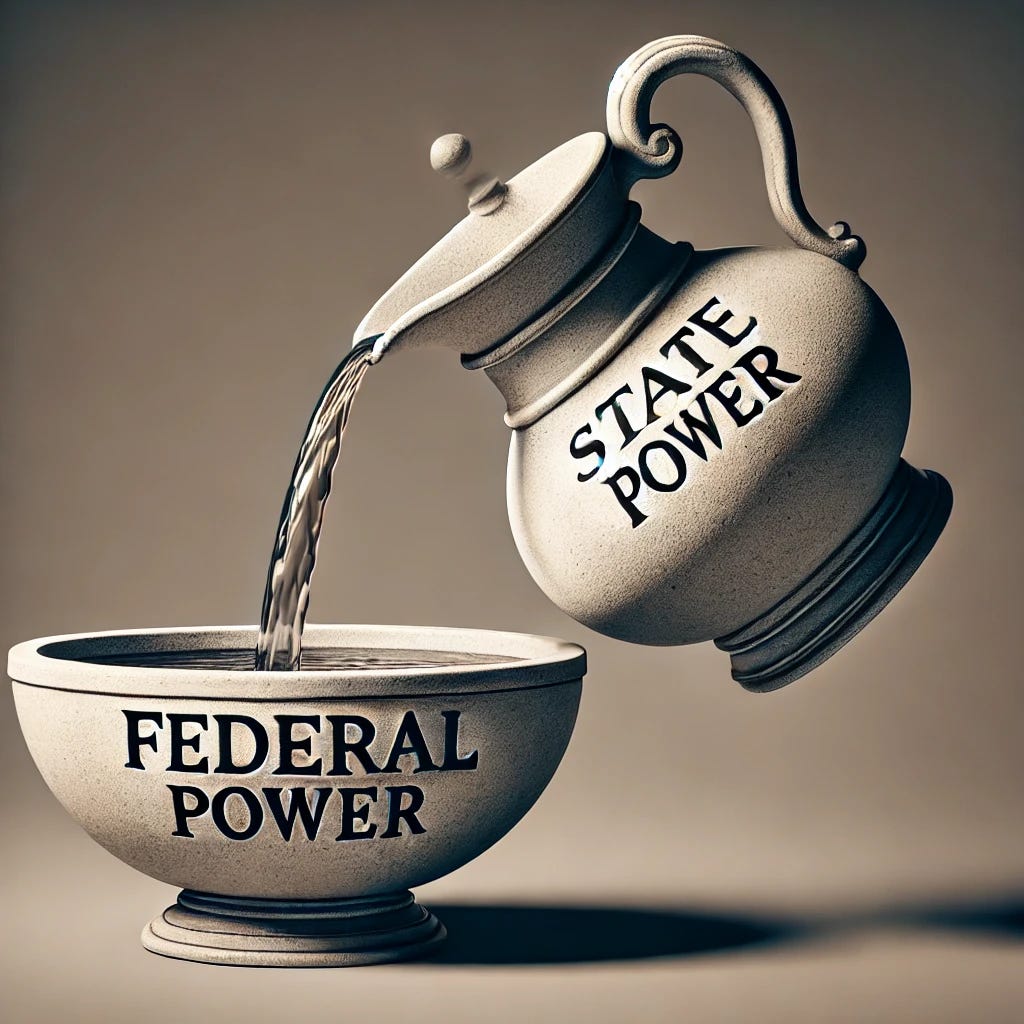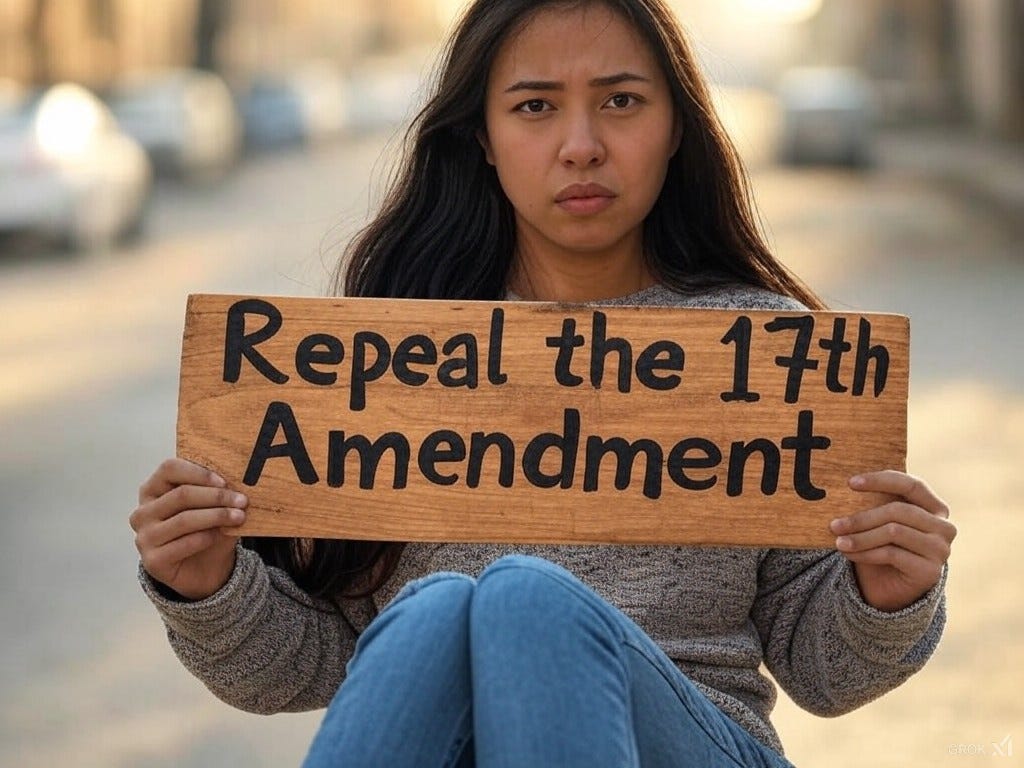The 17th Amendment to the United States Constitution, ratified on April 8, 1913, established the direct election of US Senators by popular vote. Before its passage, Senators were chosen by state legislatures, as originally outlined in Article I, Section 3 of the Constitution, which reads:
“The Senate of the United States shall be composed of two Senators from each State, chosen by the Legislature thereof, for six Years; and each Senator shall have one Vote.”
The intent of state legislatures choosing Senators was to maintain states’ rights by having state representation in the federal government. The Founders obviously didn’t know how incompetent state government can be.
The original delegation of the power to elect US Senators was intended to not only preserve states' rights, but to create a check on federal power.
There were problems with Legislative Selection:
Corruption & Bribery: The system often led to corruption, with wealthy individuals or corporations influencing state legislatures to secure Senate seats.
Deadlocks: Some state legislatures became gridlocked and failed to elect Senators, leaving states underrepresented in Congress.
Public Dissatisfaction: The system increasingly clashed with the democratic push of the Progressive Era.
The Populist and Progressive Movements (late 19th and early 20th centuries) called for more direct democracy. Some states began adopting non-binding primary elections or informal popular votes to guide legislative selection. Oregon was the first state to fully implement a system where voters chose Senators, influencing other states.
In 1909 the Senate, long resistant to reform, finally agreed to consider an amendment and in 1912 the House and Senate approved the amendment. A year later (April 8, 1913) the required three-fourths of states (36 of 48 at the time) ratified the amendment.
Text of the 17th Amendment:
The Senate of the United States shall be composed of two Senators from each State, elected by the people thereof, for six years; and each Senator shall have one vote. The electors in each State shall have the qualifications requisite for electors of the most numerous branch of the State legislatures.
The impact of the 17th Amendment was widespread and I believe not understood when it was passed. The Populists and Progressives had called for more democracy in the form of the people electing their government representatives. They got that, voters gained a direct voice in selecting their Senators.
Another aim of the amendment was to reduce the corruption in the selection process, where backroom deals resulted in a Senator who supported and voted for what the lobbyists and donors wanted, and legislative deadlocks which caused some states who, unable to settle on a Senator, didn’t send anyone and by that decision were underrepresented. This was all true.
When the states chose Senators, whatever corruption was endemic to the state was part of the selection. Corruption at the federal level was no less present that at the state, and was further removed from the people, which made it more difficult to see.
And although anyone who looked at the Constitution and the requested amendment could have forecast the change in the balance of power caused by the 17th Amendment, many were caught by surprise.
The probably unintended consequence of the 17th Amendment was a stronger Federal Government. With the loss of the ability to select who the Senators representing their state would be, state legislatures lost influence over federal decisions.
Another unintended consequence of the 17th Amendment was change of Senators from owing allegiance to their home state to what ends up being a second House of Representatives with 6 year terms. Senators now owe all their allegiance to Washington where once they had to have the support of their state governments. What about the voters, you ask? We believe that antipathy of the average voter about thinking about elections is a constant. When was the last time a sitting Senator was replaced by a candidate who was “so much better” than the incumbent that it seemed inevitable? Certainly Senators are replaced when a sea-change election occurs – the first Obama election and the 2024 Trump election are good examples – but usually they manage to keep a low enough profile that name recognition and the incumbency pretty much guarantee reelection.
Once again, surrendering a right (to select Senators) also caused a loss of power.
The 17th Amendment remains a key part of US democracy, though I believe it was a mistake. States rights, which is a powerful force right now, would be so much easier to achieve without the 17th Amendment.
If only we could repeal it as quickly as it was confirmed...
The people in Western North Carolina still need help, and it’s cold and wet in the mountains. We continue to ask that you do whatever you can to assist them.
We continue to recommend Samaritan's Purse or Mercury One as already on the ground and doing excellent work. Thank you.
If you are interested in Conservative News by Conservative Writers, take a look at Arkansas 1st News










👍-6yrs should be enough to mass at least a mil. No mas
Well said. And in 1913, the trifecta effect of the 16th Amendment (creating the tyrannical IRS/ big government) and the banking cartel of the Federal Reserve Act nailed the coffin shut for the Constitutional Republic.